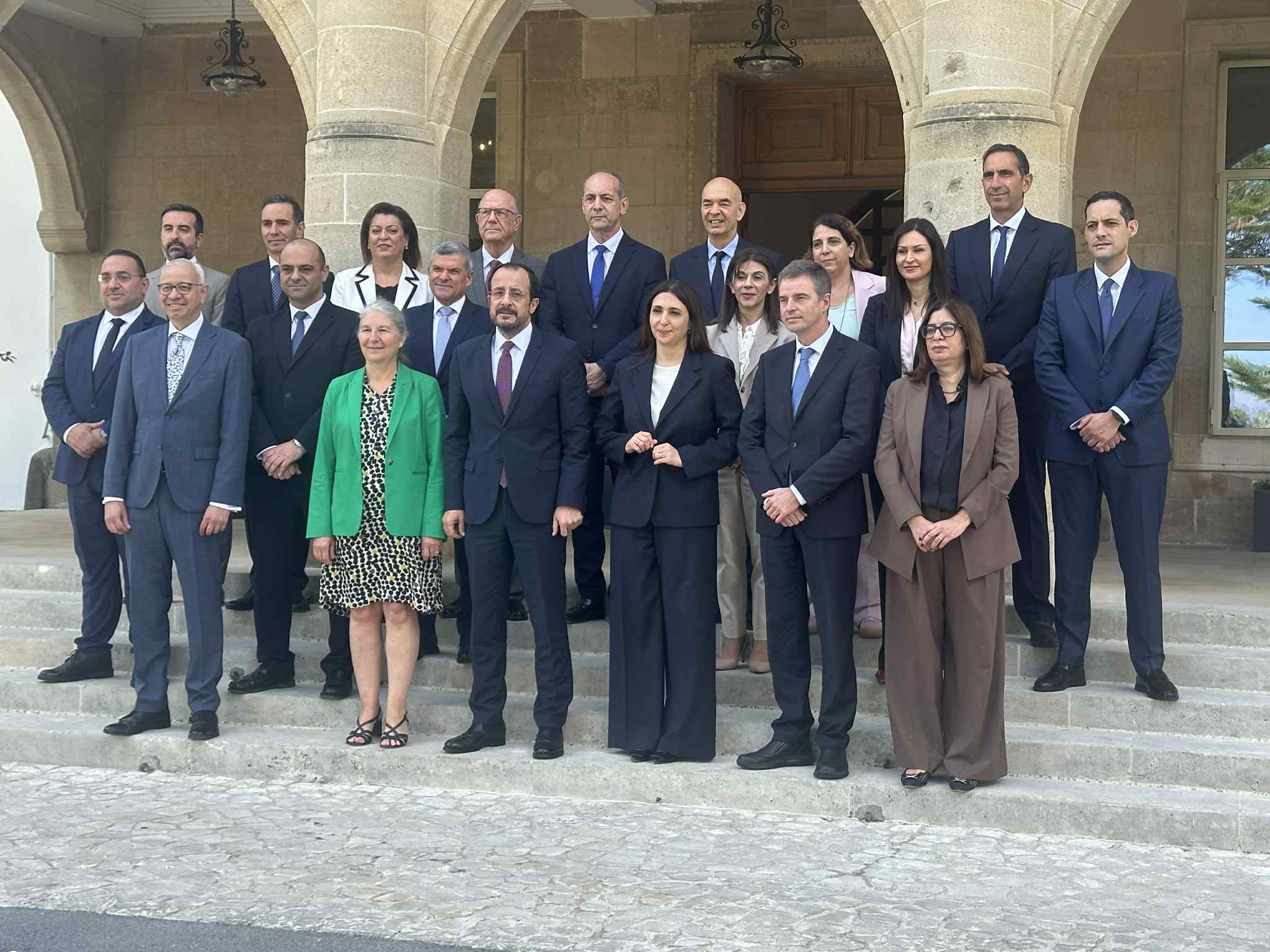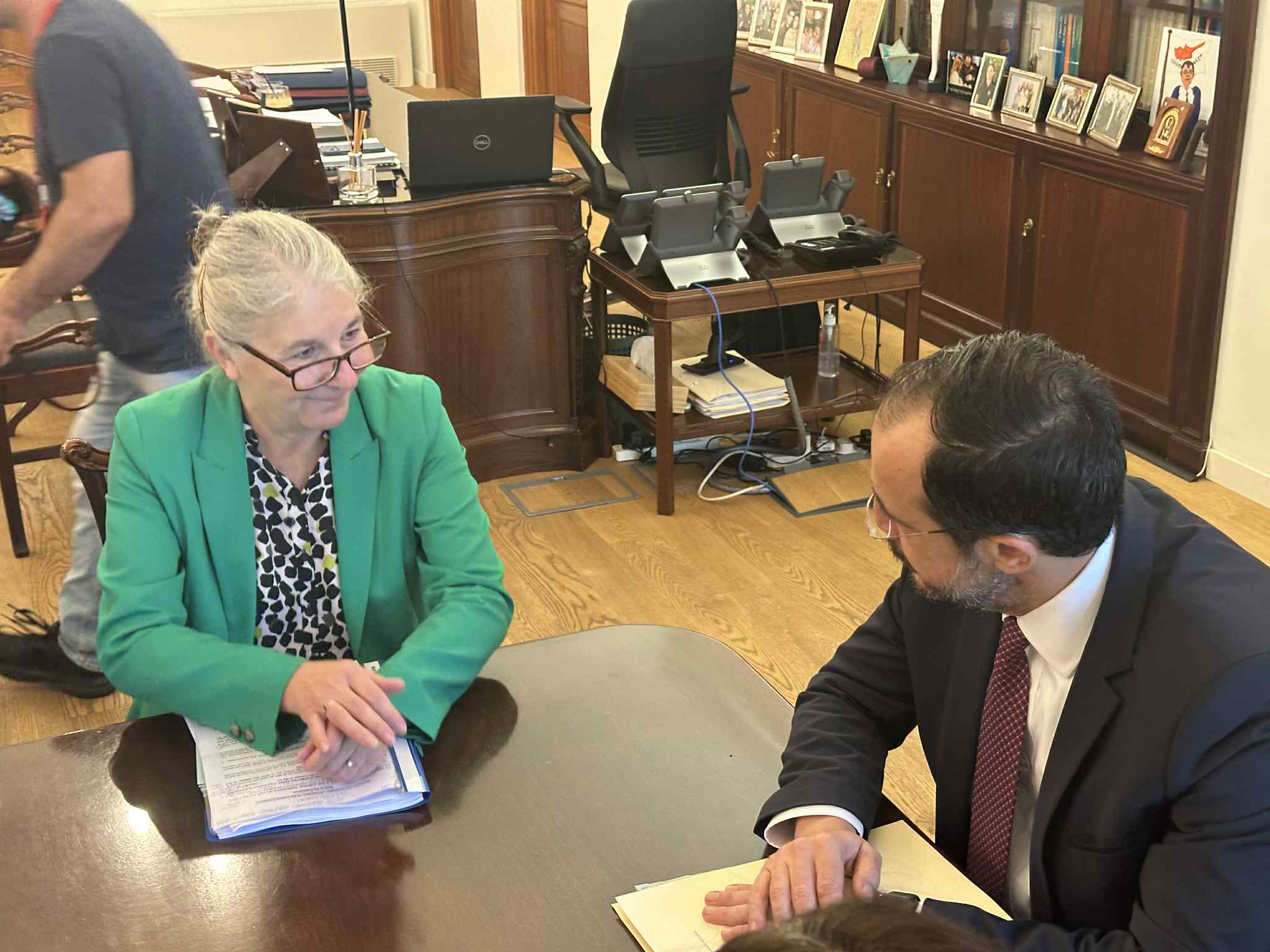Cyprus is entering the final stage of preparations for assuming the presidency of the Council of the European Union in early 2026, President Nikos Christodoulides said on Thursday, describing it as a “national mission” that will place the country at the heart of the EU, strengthen its role within the bloc, and highlight its position as the union’s southeastern border.
The president made the remarks during a meeting at the presidential palace in Nicosia with the secretary-general of the council of the EU, Therese Blanchet, and the director-general for institutional and general policy, Didier Seeuws.
The visit included a special cabinet session focusing on priority issues that will shape the Cypriot presidency’s agenda.
President Christodoulides said that less than two months before assuming the presidency, Cyprus has completed an extensive preparation process and that operational teams at the country’s permanent representation in Brussels have been reinforced to ensure readiness.
He outlined an ambitious and results-oriented presidency built on consensus, transparency and inclusiveness.
The Cypriot presidency, he said, aims to strengthen the EU’s resilience and autonomy, focusing on security, defence, continued support for Ukraine, competitiveness through simplification, enlargement and innovation.
A major priority will be negotiating the EU’s new multiannual financial framework for 2028-2034, which the president described as a strategic tool for implementing European priorities.

Following the cabinet session, bilateral meetings were held with Finance Minister Makis Keravnos, Deputy Migration Minister Nicholas Ioannides and Deputy Research, Innovation and Digital Policy Minister Nicodemos Damianou.
Earlier, Deputy Minister for European Affairs Marilena Raouna hosted a working breakfast and later a working lunch with EU officials and Cypriot ministers to discuss competitiveness and simplification measures.
Raouna, who leads the coordination of Cyprus’ preparations, confirmed that over 1,200 people have been trained so far, including ministers and officials who will chair 190 working groups during the presidency.
Preparations also cover protocol, high-level event planning, security and communication in cooperation with the council secretariat. She said preparations are progressing on schedule and that cooperation with the council secretariat remains continuous.
“The presidency is a national mission and a government priority,” she said, adding that Cyprus aims to act as an honest broker, promote the European agenda and achieve tangible results on critical issues.
The presidency programme includes 263 meetings, among them 19 informal councils of ministers, three ministerial conferences and one informal European council in Cyprus on April 23-24, 2026.
That meeting, expected to include Mediterranean partners, will showcase flagship projects under the Mediterranean pact.
Cyprus will also host a ministerial meeting on affordable housing on May 11-12, 2026 and another on the implementation of the EU pact on migration and asylum.
Discussions will centre on tackling migration drivers, combating smuggling networks, and developing legal migration pathways aligned with labour market needs.
As the EU’s southeastern member state, Cyprus will lead the implementation of the mediterranean pact, aiming to strengthen cooperation with the wider Middle East and reinforce the region’s collective resilience.
Blanchet said the Cypriot presidency comes at a crucial time for the EU, given the current geopolitical challenges and the completion of the next financial framework. Both sides reaffirmed the importance of close coordination between Nicosia and Brussels in ensuring an effective and well-prepared presidency.
Government sources said collaboration with the council secretariat covers training, security, communication, protocol, and high-level event planning. The agenda also includes a six-month roadmap on affordable housing ahead of the European commission’s action plan in December 2025.
Cyprus’ presidency, officials said, will focus on advancing key EU priorities with stability, cohesion, and the ability to project Europe’s interests in a complex geopolitical landscape.






Click here to change your cookie preferences